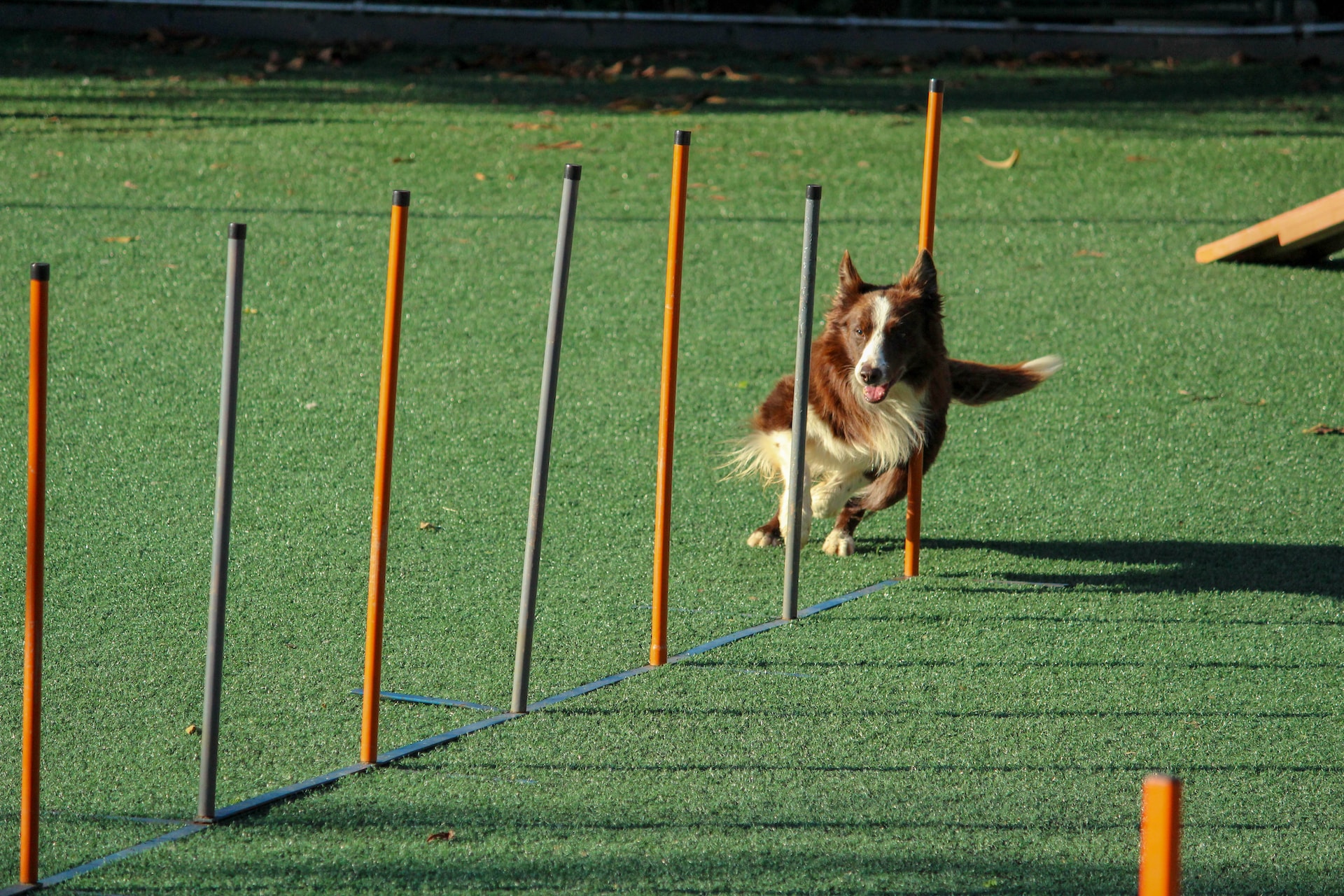
Hey there, dog lover! Are you ready to dive into the vital role of regular veterinary check-ups for your furry friend? Well, let’s get started!
We all want our canine companions to live long, healthy lives, right? That’s where regular veterinary check-ups come in. These visits to your trusted vet are one of the best ways to keep your dog active and in tip-top shape. Whether you have a playful Labrador Retriever, a spirited Jack Russell Terrier, or a majestic German Shepherd, routine check-ups are essential.
During these visits, your vet can perform a thorough examination to detect any potential health issues early on. They’ll listen to your pup’s heart, check their teeth and gums, and even run blood tests if necessary. Regular check-ups also allow for essential vaccinations and preventive treatments to keep your pet protected against pesky parasites.
Remember, prevention is key! By scheduling regular vet check-ups, you’re taking proactive steps to ensure your four-legged friend enjoys a happy and healthy life. So, make that appointment today and show your furry pal just how much you care!
When to take your pets for a veterinary checkup?
When it comes to taking care of your beloved canine companion, regular veterinary check-ups are a must. But how do you know when it’s time to pack up your playful Labrador Retriever or spirited Jack Russell Terrier and head to the vet? Let me guide you with eight-pointers on when to take your pets for a veterinary check-up.
· Annual Wellness Visit
Just like humans, dogs need an annual wellness check-up. Regardless of breed, size, or age, make it a habit to visit the vet once a year. This comprehensive examination ensures your furry friend is in top-notch health.
· Puppy and Kitten Check-ups
If you’ve recently welcomed a new member to your family, congratulations! Puppies and kittens need a series of vaccinations, deworming, and general health checks during their early months. Schedule appointments with your vet to keep your furry bundle of joy on the right track.
· Behavioural Changes
Dogs can’t talk, but they communicate through their actions. If your normally lively Golden Retriever suddenly becomes lethargic or your lively Dalmatian starts showing signs of aggression, it’s time to seek professional advice. Unexplained behavioural changes could indicate an underlying health issue.
· Weight Management
Maintaining a healthy weight is crucial for your furry friend’s overall well-being. If you notice that your Chihuahua is packing on the pounds or your Poodle is looking too thin, consult your vet. They can offer guidance on the best ways to keep your dog active and help you develop a nutritious diet plan.
· Chronic Conditions
Certain breeds are prone to specific health conditions. Whether it’s hip dysplasia in German Shepherds or heart disease in Cavalier King Charles Spaniels, regular vet check-ups are essential for managing chronic conditions and adjusting treatment plans as needed.
· Dental Health
Just like humans, dogs can suffer from dental problems. Bad breath, swollen gums, or difficulty eating can be signs of dental issues. Regular dental check-ups and professional cleanings can help maintain your dog’s pearly whites and prevent oral diseases.
· Senior Dogs
As your faithful companion ages, their health needs change. Senior dogs may develop arthritis, vision or hearing impairments, or age-related illnesses. By scheduling more frequent vet visits for your senior furry friend, you can ensure early detection of any health issues and provide appropriate care.
· Pre-travel Check-up
Planning a road trip or jet-setting adventure with your furry sidekick? Before embarking on any travel, it’s essential to get a pre-travel check-up from your vet. They can ensure your dog is up to date on vaccinations, prescribe necessary medications, and provide valuable advice to keep your dog safe and healthy during the journey.
Importance of Regular Veterinary Check-ups for Pets
Taking your furry friend for regular veterinary check-ups is more than just a routine appointment—it’s a vital investment in their overall health and well-being. So, let’s dive into the top ten benefits of scheduling those important check-ups for your canine companion. Whether you have a playful Labrador Retriever, a spirited Jack Russell Terrier, or a majestic German Shepherd, these points apply to all breeds.
1. Early Detection of Health Issues
Regular veterinary check-ups allow for early detection of any potential health problems. Your vet can perform a thorough examination, listening to your dog’s heart, checking their teeth and gums, and running necessary tests. Catching health issues early gives your pup the best chance for successful treatment.
2. Preventive Care
Prevention is key to keeping your dog healthy and active. During check-ups, your vet can administer vaccinations to protect your furry friend against common diseases like parvovirus, rabies, and distemper. They can also provide preventive treatments for fleas, ticks, and heartworms, ensuring your pup stays protected.
3. Nutrition Guidance
A well-balanced diet is essential for your dog’s health and energy levels. Your vet can offer personalized nutrition guidance, recommending the best ways to keep your dog active through a nutritious diet. They can address any specific dietary needs based on your dog’s breed, age, and health condition.
4. Weight Management
Maintaining a healthy weight is crucial for your dog’s overall well-being. Regular check-ups allow your vet to monitor your pup’s weight and body condition, making recommendations if adjustments are needed. They can guide you on proper portion sizes, exercise routines, and weight management strategies to keep your dog fit and active.
5. Dental Health
Just like humans, dogs can experience dental problems. Regular check-ups enable your vet to examine your dog’s teeth and gums, identifying any signs of dental disease. They can perform professional cleanings, provide dental care advice, and recommend suitable dental products to maintain your dog’s oral health.
6. Behavioural Evaluation
Dogs communicate through their behaviour, and sometimes, they may exhibit signs of anxiety, aggression, or unusual habits. Your vet can assess your dog’s behaviour during check-ups, helping you address any underlying issues. They may provide behaviour modification techniques or refer you to a qualified trainer if needed.
7. Senior Care
As your faithful companion ages, their health needs change. Senior dogs may develop arthritis, vision or hearing impairments, or age-related illnesses. Regular check-ups for your senior furry friend allow your vet to monitor their health closely, provide pain management strategies, and recommend appropriate adjustments to their care routine.
8. Peace of Mind
Regular veterinary check-ups offer peace of mind for pet parents. Knowing that the dog has received a thorough examination and is up to date on vaccinations and preventive treatments gives you confidence in their overall health and reduces worry about potential health risks.
9. Expert Advice
Your vet is a wealth of knowledge when it comes to dog care. Regular check-ups provide an opportunity to seek expert advice on various topics, such as training, exercise, grooming, and overall well-being. They can address any questions or concerns you may have and offer guidance based on your dog’s specific needs.
10. Strengthening the Bond
Regular vet visits create a strong bond between you, your dog, and the veterinary team. Consistent check-ups allow your dog to become familiar with the clinic environment, reducing anxiety during future visits. This positive experience fosters trust, making veterinary care a more pleasant and stress-free experience for your furry friend.
To Conclude
The benefits of taking your beloved dog for regular veterinary check-ups are undeniable. From early detection of health issues to preventive care, nutrition guidance, and behavioural evaluation, these appointments play a crucial role in keeping your furry friend healthy, active, and happy. Expert advice, peace of mind, and strengthened bond are additional rewards that come with these check-ups.
So, make those appointments a priority, show your furry companion how much you care, and enjoy the peace of mind that comes with knowing you’re doing everything you can to ensure their well-being. Your dog deserves the best, and regular veterinary check-ups are a key part of providing just that.
Frequently Asked Questions
Q1. How often should I take my dog for a veterinary check-up?
A1. It is generally recommended to take your dog for an annual check-up. However, puppies and senior dogs may require more frequent visits. Consult with your vet to determine the best schedule based on your dog’s age, breed, and health condition.
Q2. What if my dog seems perfectly healthy? Do I still need to take them to the vet?
A2. Absolutely! Even if your dog appears healthy, regular veterinary check-ups are essential for preventive care and early detection of any underlying health issues. Remember, dogs are experts at hiding discomfort, and some diseases may not show visible symptoms until they’ve progressed significantly.
Q3. How can I prepare my dog for a veterinary visit?
A3. To help your dog feel more comfortable during vet visits, ensure they are on a leash or in a carrier for safety. Bring along their favourite treats or toys as a positive distraction. It’s also helpful to acclimate your dog to being touched and handled in various ways to make the examination process smoother.
Q4. Are veterinary check-ups expensive?
A4. The cost of veterinary check-ups can vary depending on your location, the services provided, and any necessary treatments or tests. While there may be associated costs, investing in regular check-ups can save you money in the long run by preventing or addressing health issues before they become more serious and costly to treat. Remember, the health and well-being of your furry friend are priceless.

